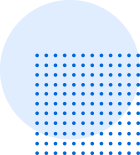
The 10th Maghrebian Congress of Applied Geophysics CMGA10, organized by the Centre for Water Research and Technologies and represented by the Geo-Resources Laboratory, will take place from November 7th to 9th in Hammamet, Tunisia, under the theme Applied Geophysics for Sustainable Development, Circular Economy, and Global Resilience in the Afro-Mediterranean Region.
This unique event brings together researchers, deeptech startups, students, and professionals from various fields to explore geophysical solutions to sustainable development challenges, such as environmental issues, energy transition, geohazards, and resource management.
The event aims to promote innovation in smart geoengineering, focusing on advanced technologies such as AI, Geographic Information Systems (GIS), Big Data, and 3D modeling. By gathering researchers, students, industry leaders, and local decision-makers, CMGA10 supports the inclusion of young graduates and local scientific communities while fostering interdisciplinary cooperation within the Maghreb ecosystem. The event seeks to promote the valorization of applied geophysics solutions and to foster the co-development of innovative initiatives.
We would be honored to welcome you to Tunisia and have you join us for this special occasion.
The 10th edition of the Maghrebian Congress of Applied Geophysics is organized by the Center for Water Research and Technologies, under the supervision of the Ministry of Higher Education and Scientific Research.
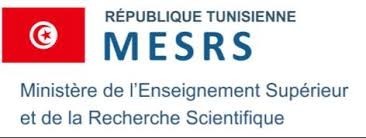
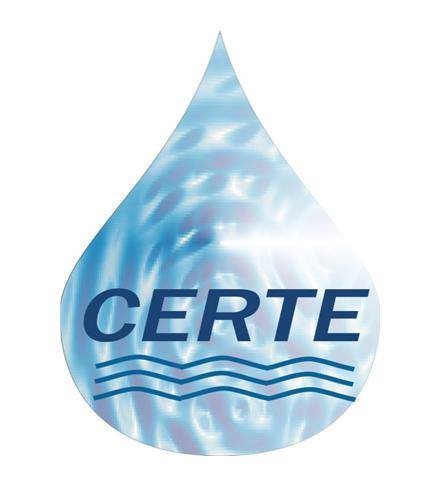
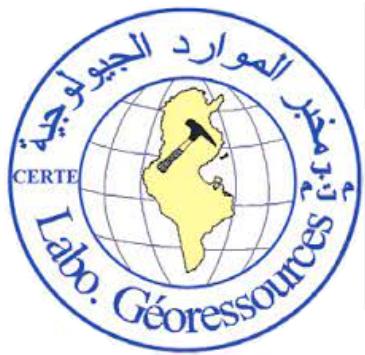
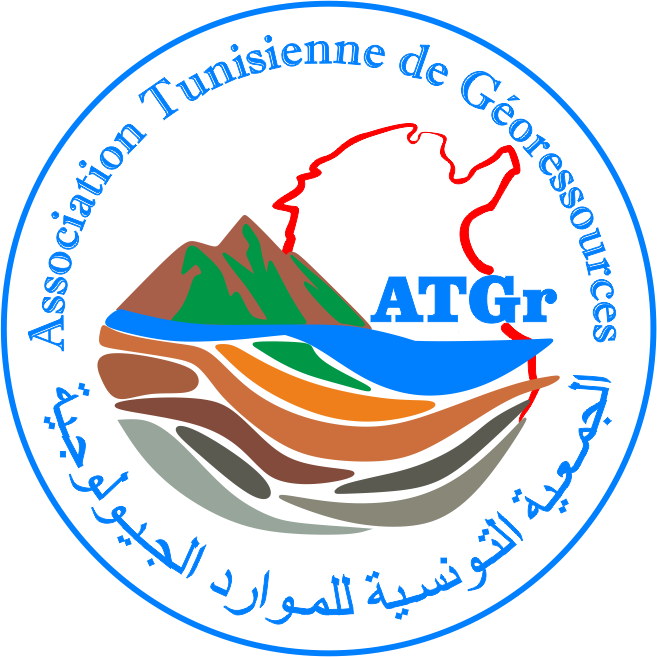
Abstract submission deadline: May 15th, 2025
Final submission deadline: July 31th, 2025 Extended for August 31st, 2025
Notification of acceptance: From August 31th, 2025
Congress dates: November 7th–9th, 2025
T1. Advanced Geophysical Data Acquisition & Processing
(Signal treatment, 3D imaging, automatic inversion, neural networks)
T2. Near-Surface Geophysics
(urban planning, geotechnics, civil engineering, soil pollution, agriculture, heritage)
T3. Sustainable Resource Exploration
(structural geology, geodynamics, sedimentary basins, strategic resources)
T4. Geohazards & Climate Adaptation
(land instability, droughts, erosion, seismic risk)
T5. Water, Energy & Sustainable Subsurface
(CO₂ storage, oil& gas, hydrogen, geothermal energy, aquifer exploration, artificial recharge)
T6. Remote sensing, Astrogeophysics & Planetology
(satellite data, planetary magnetic fields, space missions)
T7. Smart Geoengineering
(AI, GIS, Big Data, 3D Modeling)
General Chair – CMGA 10
Hakim GABTNI
General Co-Chair – CMGA 10
Mohamed DHAOUI
Organizing Chair – CMGA 10
Mourad El KOUNDI
Scientific Chairs – CMGA 10
Hajer AZAIEZ
Abir JRAD
CERTE Members
Ammar Mlayah
Anissa Ouni
Chrifa Meftahi
Dhekra Khazri
Farah Khezami
Ghassene Ben Zid
Ghazi Chouk
Hazar Mosbahi
Haykel Sellami
Ichraf Lamouchi
Imen Dhaouadi
Imen Khiari
Kalthoum Hafsa
Kaouther Bargaoui
Kaouther Ben Mabrouk
Khaoula Charrek
Manel Ghorbel
Mohamed Dhaoui
Mohamed Gharbi
Mohamed Hamrouni
Mohamed Lemine Babou
Mohamed Neji
Mourad El Koundi
Nermine Ghazouani
Nesrine Ghouili
Nesrine Kalboussi
Nesrine Ouchire
Nouha Khiari
Oussama Kortas
Refka Ben Lasmar
Samia Khadhar
Sana Ayari
Sarra Hechmi
Siwar Adli
Sofien Alyahyaoui
Wafa Tounsi
Non-CERTE members
Abdelaziz Mridekh - Morocco
Adnen Amiri - Tunisia
Ghada Ben Brahim - Tunisia
Hamza Bouabdallah - Algeria
Imen Hamdi - Tunisia
Lamine Hamai- Algeria
Makram Harzalli - Tunisia
Mohamed Abdelhadi - Tunisia
Mohamed El Bouhaddioui - Morocco
Nesrine Frifita - Tunisia
Oussama Abidi - Tunisia
Ramdhan Benassi - Tunisia
Zoubida Nemer - Algeria
Abdelaziz Mridekh – Morocco
Abdelkader Mhamdi – Tunisia
Abdelkrim Yelles Chaouche – Algeria
Abderrazak Bouzid – Algeria
Abdeslam Abtout – Algeria
Abir Jrad – Tunisia
Amina Mabrouk – Tunisia
Ammar Mlayah – Tunisia
Amor Ben Moussa – Tunisia
Anis Chekirbene – Tunisia
Apostolos Sarris – Cyprus
Atmane Lamali – Algeria
Azzouz Kchikach – Morocco
Chokri Jallouli – Tunisia
Christian Camerlynck – France
Dorra Tanfous – Tunisia
Driss Khattach – Morocco
Eleftheria Papadimitriou – Greece
Elina Aidona – Greece
Faten Horriche – Tunisia
Fatma Khaldaoui - Algeria
Fayçal Rejiba – France
Ferid Dhahri – Tunisia
Fetheddine Melki – Tunisia
Fethi Lachaal – Tunisia
Fouzi Bellalem – Algeria
Gad El-Qady – Egypt
Gaghik Hovhannissian – France
Hajer Azaiez – Tunisia
Hakim Gabtni – Tunisia
Hamdi Essaieb - Tunisia
Hamoud Beldjoudi – Algeria
Hamza Bouabbdallah – Algeria
Hayet Chihi – Tunisia
Houcem Mzali – Tunisia
Imed Riadh Farah – Tunisia
Ivana Vasiljević – Serbia
Jorg Fassbinder – Germany
Kaouther Sebei – Tunisia
Karim Allek - Algeria
Kevin Lee Mickus – United States
Lahcen Zouhri – France
Lamine Hamai – Algeria
Larisa Golovko – Russia
Leila Alliouane – Algeria
M. El Hacen Yeslem - Mauritania
Mabrouk Boughdiri – Tunisia
Mabrouk Djeddi – Algeria
Makhlouf Soraya - Algeria
Matthew Agius – Malta
Maurizio Fedi – Italy
Michel Dabbas – France
Moez Gouasmia – Tunisia
Mohamed Abdel Zaher – Egypt
Mohamed Dhaoui – Tunisia
Mohamed Gasmi – Tunisia
Mohamed Gharbi – Tunisia
Mohamed Hamoudi – Algeria
Mohamed Hedi Inoubli – Tunisia
Mohamed Kefi – Tunisia
Mohamed Metwaly – Egypt
Mohamed Soussi – Tunisia
Mohammed Djeddi – Algeria
Mohammed Farfour – Algeria
Mohammed Jaffal – Morocco
Moncef Saidi – Tunisia
Mourad El Koundi – Tunisia
Moustapha Boualoul – Morocco
Mustapha Boujamaoui – Morocco
Nassim Hallal - Algeria
Nikos Papadopoulous – Greece
Noomen Rebai – Tunisia
Néjib Bahrouni – Tunisia
Olivier Kaufmann – Belgium
Pierre Andrieux – France
Pierre Rochette – France
Radwin Askari – USA
Riadh Ahmadi – Tunisia
Rihab Guellala – Tunisia
Roger Guerin – France
Said GACI - Algeria
Saleh A. Sadeg – Libya
Salem Bouri – Tunisia
Sami Khomsi – Tunisia
Samia Khadhar – Tunisia
Sidi Mohamed Dahi – Mauritania
Sonia Gannouni – Tunisia
Taher Aifa – France
Taher Zouaghi - Tunisia
Younes Hamed – Tunisia
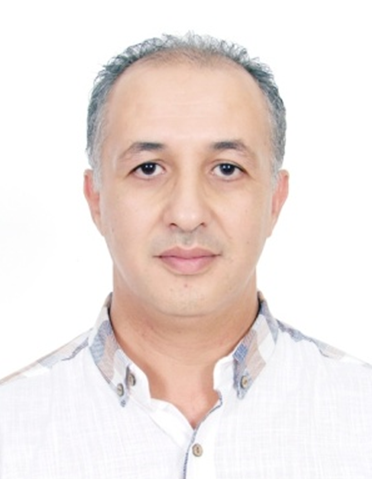
Professor Karim Allek, research-active professor of applied geophysics at the University of Boumerdes, where he serves as Chair of the Scientific Committee of the Department of Geophysics, as well as a member of the Scientific Council of the Faculty of Hydrocarbons. He holds an Engineering Diploma in Geophysics and an M.Sc. in Geological and Mineral Sciences from the Moscow Geological Prospecting University. He obtained a PhD in geophysics from the University of Sciences and Technology Houari Boumediene (USTHB) in Algiers, followed by Postdoctoral University Habilitation from the University of Boumerdes.
Before his academic appointment, he spent over fifteen years as a senior geophysicist in the mineral exploration industry, contributing to multiple projects focused on base metals, gold, and diamond exploration.
His teaching focuses on applied geophysical prospecting methods—gravity, magnetics, radiometry—as well as the processing and interpretation of potential field data in sedimentary basins. His knowledge-transfer commitment extends to training engineers from mining and petroleum corporations in advanced geophysical exploration techniques.
He currently leads the “Predictive Modeling in Exploration” research team at the Earth Physics Laboratory and has contributed to several research projects involving geomagnetism, environmental geophysics, non-seismic methods for hydrocarbon exploration, and predictive mapping of polymetallic mineral systems. He has supervised several M.Sc. and Ph.D. theses. His research focuses on integrated exploration strategies that rely on GIS-based data integration to improve targeting accuracy, advanced gravity and magnetic modeling techniques for subsurface characterization, and unconventional geophysical approaches to hydrocarbon exploration, particularly through the identification of anomalies associated with hydrocarbon microseepage.
Professor Allek has taken part in numerous scientific events, assuming roles in some cases as a member of either the scientific committee or the organizing committee. He has also contributed to several international scientific literature as both an author and a peer reviewer.
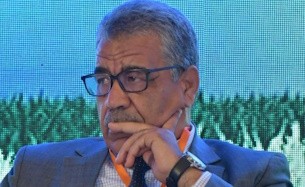
Professor Abdelaziz Mridekh is a leading figure in applied geophysics and hydrogeophysics, with over twenty years of experience in research, higher education, and the management of innovative projects. Holding a DEA from the University of Tunis El Manar (1994) and a doctorate from Ibn Tofail University (2002), he enriched his profile with field experience in the private sector (GéoAtlas), which consolidated his mastery of applied methods in geosciences.
As a professor at Ibn Tofail University, he currently leads the "Geoinformation et modélisation" research unit, where he coordinates interdisciplinary programs, technology transfers, and mentorship of young researchers. His areas of expertise include hydrogeophysics, petroleum basin exploration, seismic stratigraphy, geostatistical modeling, and GIS. He has led or co-supervised key projects: studying saline intrusion in aquifers, pollution modeling, consolidation of hydraulic structures, underground hydrogen storage, natural hazard Agadir museum, thus contributing to the sustainable management of natural resources and methodological innovation.
A prolific author, he publishes in international journals, undertakes scientific review activities, and fosters international collaborations, enhancing the reach of his work. His vision for the future is driven by the integration of digital technologies and remote sensing for anticipating climate impacts, and by the training of the new generation of geoscientists.
Solid academic background: high-level education in two recognized universities.
Enriching professional experience: combining research, field practice, and the private sector.
Multidisciplinary expertise: hydrogeophysics, petroleum exploration, seismic stratigraphy, GIS, and innovative technologies.
Major scientific contributions: advances in saline intrusion, prevention of groundwater pollution, and infrastructure stabilization.
Leadership and international collaboration: team leadership, mentoring, and active involvement in global scientific networks.

Professor Eleftheria E. Papadimitriou, a geologist and seismologist with a deep commitment to advancing the field of geophysics. With a Bachelor's degree in Geology and a Ph.D. specializing in Seismology, her career has been dedicated to furthering our understanding of earthquakes and seismic activity. Fluent in Greek, English, French, and Russian, she has fostered international collaborations and established connections with approximately 55 foreign institutions.
She has actively engaged in teaching seismology to undergraduate and postgraduate students, nurturing their passion for geophysics, mentoring and guiding the theses of undergraduate, master's, and Ph.D. students.
She is also a member of eight scientific societies and have actively contributed to 14 special committees and councils. In recognition of her dedication to advancing scientific knowledge, she served as the Editor-in-Chief of Acta Geophysica, a prestigious publication managed by the Polish Academy of Sciences and Springer, for seven years. Additionally, she holds the position of Associate Editor in five scientific peer-reviewed journals.
She also actively paricipated in more than 100 scientific meetings, made significant contributions to over 70 research projects, assuming scientific responsibility for 20 of them. With over 250 publications and more than 2400 citations (excluding self citaions of all authors), her research has made a lasting impact on the field of geophysics.
She also holds leadership positions, including serving on boards of directors and as the Head of the Department and Laboratory of Geophysics at the School of Geology, Aristotle University of Thessaloniki.
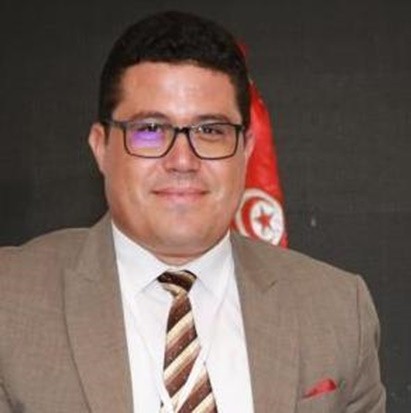
Professor Hakim Gabtni is a senior geophysicist and full Professor at the Georesources Laboratory, Centre of Water Research and Technology (CERTE), Tunisia, where he currently serves as the Director General. He earned a B.S. degree in geology/geophysics in 2000, a master's degree in 2002, a Ph.D. in 2006, and HDR in 2012 from Tunis El Manar University (Tunisia).
His research interests encompass gravity and aeromagnetic investigations of sedimentary basins, integrated potential geophysical techniques, seismic methods for three-dimensional modeling of complex geological structures, and the application of microgravity, seismic refraction/MASW, electromagnetic methods, and electrical resistivity tomography to near-surface geology, water resources, and georesources exploration. He has conducted numerous research and development projects and provided extensive consulting services. Pr. Gabtni has served as associate editor and guest editor for several international high-impact scientific journals and is the reviewer and author of numerous scientific publications.
Workshop 1: Deep Earth Insights – Gravity/Magnetism
This workshop highlights gravity and magnetic methods applied to the exploration of deep structures in the Earth’s crust, particularly in complex geological settings. It offers targeted training on advanced processing of gravity and magnetic signals. Participants will discover integrated 3D modeling tools and recent applications in structural geology, hydrogeology, geothermal exploration, mineral prospecting, oil&gas exploration, and sedimentary basin mapping.
Workshop 2: Exploring AI for Geosciences
This workshop aims to introduce participants to the fundamentals of artificial intelligence applied to geosciences. It will present practical use cases in geophysical data interpretation, predictive mapping, and hydrogeological modeling. Participants will gain hands-on skills to integrate AI algorithms into their scientific workflows using accessible tools and real datasets.
Workshop 3: Methodological Guide for Preparing a Geophysical Study for Water Well Drilling
This workshop provides a structured approach for designing a geophysical study report aimed at implementing water wells.
Participants will learn how to choose the appropriate geophysical methods (VES, TDEM, ERT, seismic, gravity...) according to the geological and hydrogeological context of the target area. The workshop will also cover key steps in data interpretation and the formulation of technical recommendations for drilling.
Workshop 4: Geological Hydrogen & Deep Geophysics: A New Energy Paradigm for Tunisia’s Subsurface -- Novembre 8, 2025 (9H-12H)
Project: TRAJECTOIRE – Geological Hydrogen from Groundwater (Coordinator Pr. Hakim GABTNI, CERTE-Tunisia) – Projet P2ES2024-D1P1 - Programme d'Encouragement à l'Excellence Scientifique - MESRS.
General Context: As the global transition towards sustainable and low-carbon energy intensifies, geological hydrogen (also known as natural hydrogen) is gaining momentum as a clean, renewable, and strategically significant energy source. Tunisia, with its rich but underexplored deep geological formations, is emerging as a promising territory for the exploration and valorization of natural hydrogen, particularly from deep groundwater systems.
Workshop Objective: This workshop aims to bring together scientists, energy stakeholders, policymakers, and development partners around a new energy paradigm centered on the deep Earth’s capacity to generate and store hydrogen. It will build on the ongoing research under the P2ES2024-D1P1 project, which integrates advanced geophysical methods, deep geological studies, and strategic analysis of national potential.
Thematic Axes:
1. Geological Potential of Natural Hydrogen in Tunisia
- Structural and sedimentary frameworks conducive to hydrogen generation
- Focus on intracratonic basins, deep fault zones, …
2. Geophysical Innovations for Deep Subsurface Imaging
- Applications of gravity, Magnetic and deep seismic
- Correlations with geothermal anomalies
3. Hydrogen & Deep Groundwater Systems
- Mechanisms of natural hydrogen production (serpentinization, radiolysis)
- Role of deep aquifers as hydrogen carriers or traps
4. Towards a National Mapping of Natural Hydrogen Potential
- Synthesis of existing data and identification of knowledge gaps
- Multiscale geo-data integration for prospectivity modeling
5. Regulatory Framework, Industrial Valorization & Investment Readiness
- Legal and institutional requirements for hydrogen exploration
- Integration into Tunisia’s national energy strategy and green transition goals
Target Audience:
• Universities and research institutions in geology, geophysics, hydrogeology
• Ministries of Energy, Environment, Agriculture, and Water Resources
• National agencies (DGRE, ETAP, …)
• Private investors and renewable energy startups
• International technical and funding partners
Expected Outcomes:
• A shared scientific roadmap for hydrogen exploration in Tunisia
• Launch of pilot field studies in promising zones
• Policy recommendations to support a national hydrogen program
• Capacity building in deep geophysical and hydrogeological techniques
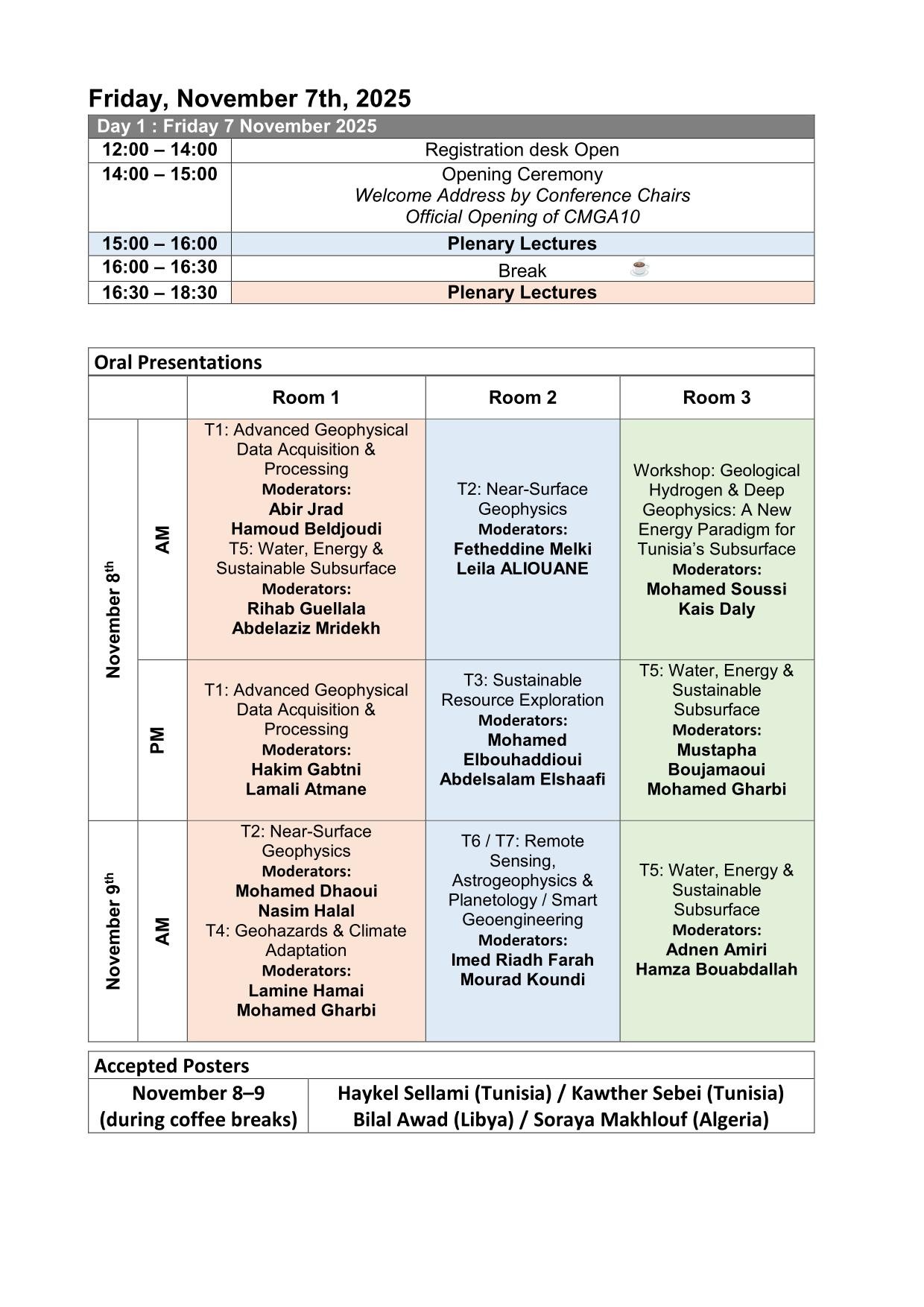
Workshop: Geological Hydrogen & Deep Geophysics: A New Energy Paradigm for Tunisia’s Subsurface
|
Room3 |
Saturday, November 8th, 2025 |
|
|
Chairs: |
||
|
|
||
|
08:30 – 09:00 |
Accueil des participants |
|
|
09:00 - 09:15 |
Introduction & Mot d’ouverture |
Prof. Gabtni. Hakim |
|
09:15 – 09:45 |
Talk 1 : Geological Hydrogen in Tunisia: Crustal Structure, Deep Geophysics/Geology and Potential Prospective Zones |
Prof. Hakim Gabtni’s |
|
10:00 - 10:15 |
Talk 2 :Deep Geology and Geological Hydrogen Prospectivity in Northern Tunisia |
Lamouchi Ichraf |
|
Coffee-Break |
||
|
10:45 - 11:15 |
Talk 3 :Understanding the Deep Geology of Central Tunisia: Deep Fault Systems and Geological Hydrogen Potential |
Meftahi Cherifa |
|
11:15 - 11:30 |
Talk 4 :Gravity, Aeromagnetic and Heat Flow Constraints on Southern Tunisia's Deep Geology: Preliminary Investigation of Natural Hydrogen Potential |
Belhassen Ranim |
|
11:45 - 12:15 |
Discussion plénière : Perspectives pour la prospection H₂ naturel en Tunisie |
Modérateurs : Pr. Mohamed SOUSSI & Ing. Kais DALY |
|
12:15 - 12:30 |
Clôture et recommandations scientifiques |
|